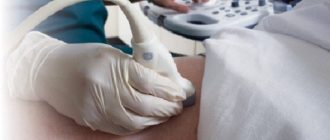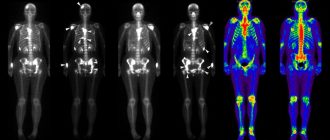Sowing of prostate secretion is a procedure that allows you to determine the presence and type of pathogenic microflora in the prostate juice. Indications for analysis are symptoms of prostatitis. Additionally, it is necessary to carry out preparation immediately before taking the material. After this, the bacteria mature and the results are deciphered. The analysis allows you to determine the presence of infection and suitable drugs to combat it within 7 days.
Objectives
Bacteriological culture of prostate secretion allows one to determine both the type of bacteria that caused inflammation of the organ and their susceptibility to various substances. Analysis of flora and sensitivity to antibiotics allows you to accurately determine the necessary groups of drugs that will be effective in treating the infection.
As a result, the following bacteria can be identified:
- staphylococci;
- Klebsiella;
- enterococci;
- gonococci;
- Pseudomonas aeruginosa;
- Trichomonas;
- fungi and other pathogenic microflora.
Bacteriological culture is carried out in conjunction with a microscopic examination, which makes it possible to identify other particles in the prostate secretion. In the absence of disease, both analyzes will show the complete absence of any components other than those included in prostatic juice.
Indications
A tank culture of prostate secretion is done in the following cases:
- pain in the groin;
- pain when urinating, frequent urge to urinate with a small amount of urine released, feeling of incomplete emptying after;
- sexual dysfunctions - erectile dysfunction, discomfort after ejaculation, the presence of pus, mucus or blood in it;
- discharge from the head of the penis;
- burning in the urethra;
- infertility.
In addition to the obvious symptoms of prostatitis, it is necessary to undergo prostate juice testing regularly, especially for men after 30 years of age.
Contraindications
Bacteriological culture is contraindicated in the following cases:
- acute inflammatory processes in the body;
- colds with high body temperature;
- hemorrhoids or anal damage.
Preparing for analysis
The analysis requires some preparatory measures before delivery; 3 days before it is necessary:
- refrain from sexual activity;
- refuse physical activity;
- avoid hypothermia;
- do not drink alcohol;
- refrain from taking antibiotics.
The procedure is performed on an empty stomach; before performing it, a cleansing enema is given, and the bladder must also be emptied.
Material collection process
The tank is inoculated with prostate juice based on the material obtained by palpation of the prostate gland through the anus. For this, the patient is asked to take one of two comfortable positions in which the intestines are as relaxed as possible. As a result of such exposure, a secretion is released, which is analyzed for the presence of infections.
Decoding the analysis: deviations and norms
The analysis for bacterial culture and interpretation of the results is carried out within 5-7 days and is performed in 2 stages. Firstly, the material is placed in an environment suitable for the growth of bacteria, after which observations are made to see which species and strains appear. If there is growth, it means that the secretion itself already contains an infection. At the second stage, the resulting bacteria are tested for sensitivity to groups of antibiotics. The fact is that many microorganisms that cause prostatitis have low sensitivity to most drugs, so it is necessary to identify those that will be able to effectively fight the infection.



